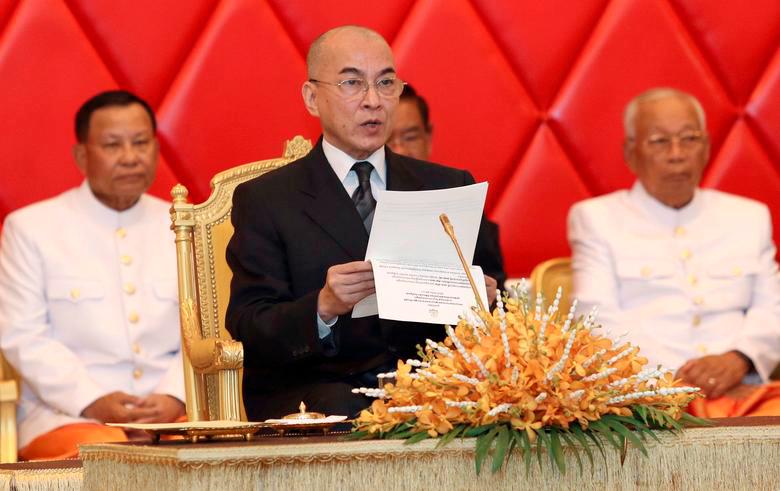PHNOM PENH: Two Cambodian opposition activists were charged with insulting the king and incitement Wednesday following Facebook posts the authorities deemed disrespectful to the monarch, according to court warrants.
Human rights activists had previously warned enactment of the 2018 lese majeste law, which carries a sentence of between one and five years in prison, could be wielded to target dissent.
The two youth activists -- Yim Sinorn and Hun Kosal -- were arrested on Tuesday evening after posting allegedly insulting language against King Norodom Sihamoni on Facebook.
Yim Sinorn, a close aide to opposition leader Kem Sokha, posted “according to the voice of people from coffee shops, today we can clearly see who is the real King”.
Hun Kosal also posted that he would gather behind Kem Sokha to protect the monarch and the throne after “seeing they mistreat the feeling and dishonour the Khmer King.”
The activists wrote the posts after King Sihamoni, Prime Minister Hun Sen and senior government officials attended a live-televised ceremony at Angkor Wat temple on Tuesday morning to light the torch for the upcoming SEA Games in Cambodia.
In two separate warrants, seen by AFP, a judge on Wednesday night ordered the detention of the two activists “on charges of insulting the king and incitement to commit a serious unrest to social security”.
Speaking at a graduation ceremony on Wednesday morning, Hun Sen said the pair had “bad intention” and vowed he won’t forgive anyone who insulted the king and himself.
“This is not a right to freedom of expression. This is an intentional slander that aims to destroy, to insult the king and to destroy the name of the prime minister,“ Hun Sen said.
The pair also face up to two years in jail for the incitement charge.
Phil Robertson, Human Rights Watch’s deputy Asia director, said the pair were detained “on fabricated, politically motivated charges”.
Earlier this month opposition leader Kem Sokha was sentenced to 27 years in jail and placed under house arrest for treason.
Cambodia will go to polls in July. - AFP









